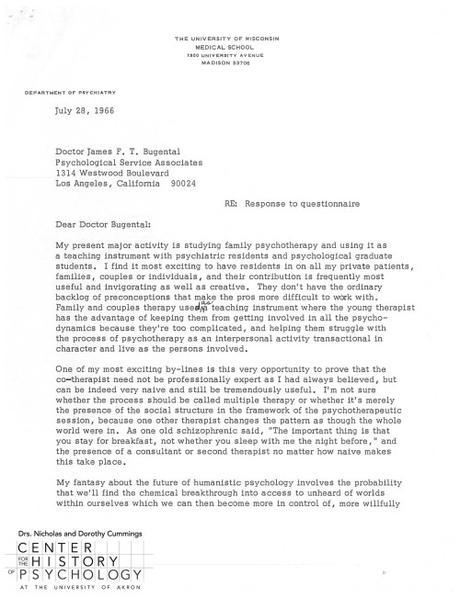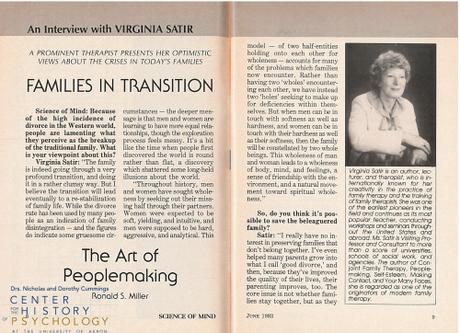–contributed by Arianna Iliff, graduate student assistant.
By the time you read this, I will be gone…from graduate school! After two and a half years here at the CCHP, I’m hitting the road with a fresh Master’s degree in Counseling/Marriage and Family Therapy in hand. Before I started school, I had a goal to get a job that would help me understand my field better and back up the knowledge I gained in class, and I was so lucky to find the CCHP in the process. I’ve spent the last two and a half years learning by doing, searching through manuscripts and images for our researchers and getting drawn into the stories of psychology’s history. So for my final blog post, I’d like to talk a little bit about two of my favorite therapists in history. Carl Whitaker and Virginia Satir were a pair of iconoclasts: major influences in my own field of family therapy and originators of an experiential model of therapy.
Carl Whitaker, a psychiatrist by trade, was a major advocate for co-therapy, or two therapists working with one family. Whitaker was known for making outrageous statements in therapy sessions, what I like to call his “sick Whitakerisms.” By using this ‘therapy of the absurd,’ he was able to get families out of their comfort zone to promote growth. I was surprised to find him in the James F. T. Bugenthal papers, where there is an entire folder of correspondence with Carl Whitaker. In this correspondence, he discusses the inclusion of his paper “The Therapist as a Prototype” in The Challenge of Humanistic Psychology.

“The important thing is that you stay for breakfast, not whether you sleep with me the night before.” I am entirely unsurprised this quotation stuck with Whitaker. [James F. T. Bugenthal papers, Box M951, Folder 1]

Despite being known for her gentle and nurturing style, Satir had a direct streak: “I really have no interest in preserving families that don’t belong together.” [Special Interest, Popular Psychology Magazines, Box 93]
The New PeoplemakingNow, I am going forth to be a therapist, and I hope in my own career I can do something important enough to be included in the CCHP archives.
